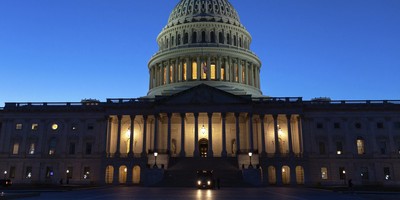I do not believe the government should use taxes as a way of changing behavior. Sin taxes on alcohol and tobacco are obvious examples of how the tax code is used to discourage certain activities. Unfortunately, many have come to accept this method of meddling in how we live. But to be consistent, those who accept it should then also support any tax on behavior that the majority (or those more powerful than us) disfavor. Soda taxes, juice taxes, and french fry taxes are fully consistent with this model. Continuing this approach, why not tax lack-of-exercise, too vigorous exercise, and any other behavior that could do one harm? After all, the argument goes, we the taxpayers are paying more for government-run health care these days, shouldn't responsible government be encouraged to dictate behavior? Taxing any disfavored behavior takes us down a slippery slope leading to government intervention into every decision we make. Such a scheme could never be fair and effective.
Another problem with this type of tax policy is that it is highly subject to be misapplied because of a distorted understanding of the risk being taxed. As we'll see in a moment, the taxes on different types of tobacco are a prime example. Until we overturn our heavy-handed behavior-modifying system, we should work to ensure that the tax on any disfavored behavior is tied to the actual risk society is trying to reduce.
Recommended
But most tobacco taxes fail to differentiate between the different risks of different tobacco products. Cigarettes and smokeless tobacco, or snus, present very different risks. Burning and inhaling tobacco is what makes it so extremely dangerous. The use of smokeless tobacco, while not 100% safe, comes nowhere near the risk. That is because it is not burned and not inhaled. Therefore, it doesn't come with the major risks of heart disease, lung cancer, and systemic illnesses caused by smoking.
Yet cigarettes and snus are taxed at about the same rate, even though their risks are vastly different. It is like taxing a 64 ounce serving of soda about the same as a 12 ounces. This is where Indiana caught up with the science and changed their tobacco tax rate. They encoded in law their finding that "the tax rate on smokeless tobacco should reflect the relative risk between such products and cigarettes."
This marks the first time any state has codified such a rational rationale.
Now I could quibble, and point out that the tax on snus is not, say 99% lower than the cigarette tax, to reflect something closer to its 99% lower risk. It is impossible to quantify with any specificity the lower risk of snus compared to cigarettes.
Cigarettes are so harmful because the tobacco is burned and its smoke inhaled. Snus, which is certainly not a risk-free tobacco alternative, is certainly far less harmful than cigarettes, simply because users don't smoke it. It is about time that at least one state's tax policy is catching up with this reality.
A growing group of public health advocates is excited about the potential for snus to help tobacco users lower their risk. Of course, we'd prefer if everyone stopped using all forms of tobacco completely and immediately. If it were only that easy. So we endorse the use of snus and other smokeless tobacco products as a means of "harm reduction" to reduce the risk of tobacco use for those who have repeatedly tried to quit smoking by other means and failed. I'd rather see someone exposed to the lower risk of snus than the higher risk of continued smoking. Indiana's new approach to taxing snus is a move towards embracing the harm reduction model and should be applauded.
— Jeff Stier is a senior fellow at the National Center for Public Policy Research in Washington, D.C., and heads its Risk Analysis Division. Follow him at @JeffAStier on Twitter.

























Join the conversation as a VIP Member